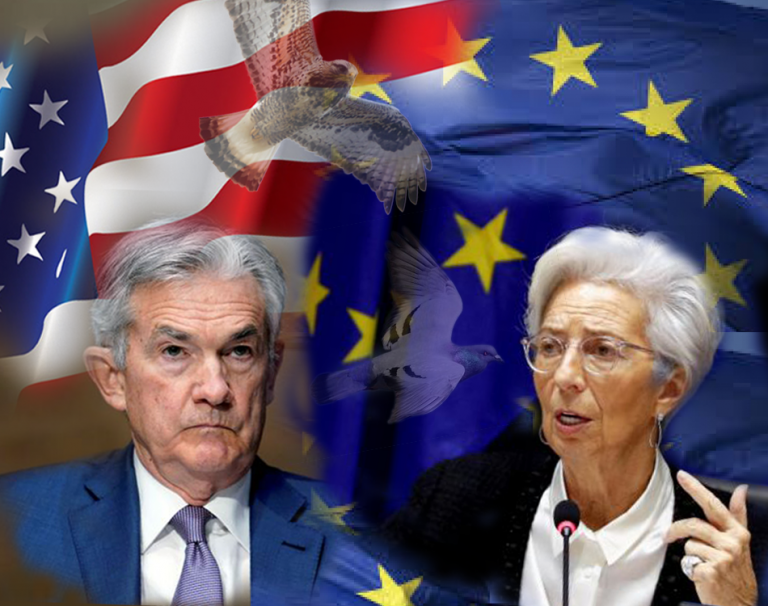
Inflation not only raises prices, it also raises the “thermometer” on the movements of the world's two largest central banks, the US Federal Reserve and the European Central Bank.
Following today's surprise rise in the US CPI, the Fed faces tougher decisions on when to ease monetary policy, with dollar interest rates already at their highest level in 23 years. This is because new price increases in the US economy, especially in the cost of housing and fuel, are increasing market doubts about the possibility of an interest rate cut by Federal Reserve Chairman Jerome Powell and the rest of the Fed members in June. Bets start shifting for such a move in September.
Unemployment equation “headache” of interest rates – obstacles facing the European Central Bank and the Fed
If these new forecasts are confirmed and the ECB moves, as expected, with its first interest rate cut in June, there will be a significant difference in the policy of the two central banks. Such a development could cause, among other things, strong pressure on the euro, because it was the Fed that started the round of interest rate increases almost two years ago, and under other circumstances it was expected that it would now be the first to do so. Start discounts.
The European Central Bank meets tomorrow, Thursday, April 11, in Frankfurt, where it will indicate the policy it will follow. Lagarde signaled an interest rate cut in the summer, while French central bank governor and ECB Governing Council member Villeroy de Gallo warned that the ECB may ease monetary policy regardless of what the Fed does. The inflation rate in the euro area in March reached 2.4% on an annual basis.
Inflation continues in the United States
US inflation rose to 3.5% year-on-year in March, beating expectations and marking a second straight monthly increase, according to new data today. Inflation reached 3.2% in February on an annual basis from 3.1% in January. The core inflation rate, which excludes changes in food and energy costs, remained at 3.8%.
Following recent data on inflation and the labor market, futures participants lowered their expectations on the number of quarterly interest rate cuts the Fed will make this year. They now expect two or three cuts, down from the six or seven they expected last January. Interest rates are set by the Federal Reserve in a range of 5.25% to 5.5%, the highest since 2001, in an attempt to contain accelerating inflation.
European Central Bank moves
The European Central Bank's base deposit rate is currently 4%. Policymakers at the bank, led by President Christine Lagarde, began preparing markets for the first cut on June 6 as price pressures in the euro zone eased quickly, unlike in the United States. Although ECB members officially denied their interest in moving alongside the Fed on tapering, they did not commit to what would happen after the first step, arguing that economic data would determine the next moves.
Euro/dollar exchange rate
Bets on the euro falling are back at dollar levels now, as European Central Bank policymakers appear set to make more interest rate cuts this year than their US counterparts.
Banks such as Bank of America and Germany's LBBW warn of future euro weakness if expectations about the different pace of interest rate cuts from the European Central Bank and the Fed are confirmed. The Bank of New York Mellon estimates that the euro may reach parity with the dollar this year. One dollar would be equivalent to one euro if the Fed kept interest rates unchanged while the European Central Bank lowered them, according to LBBW estimates. The bank expects the euro to fall to $1.01 in 2025. Today, one euro is equal to $1.08 US dollars.

“Avid problem solver. Extreme social media junkie. Beer buff. Coffee guru. Internet geek. Travel ninja.”





More Stories
Bloomberg: Europe's largest “smart city” is being built in Greece
Strong fall in the wall, due to deteriorating bonds – at -1.57%, S&P 500, Nasdaq -2%
The Russian shadow fleet threatens Sweden